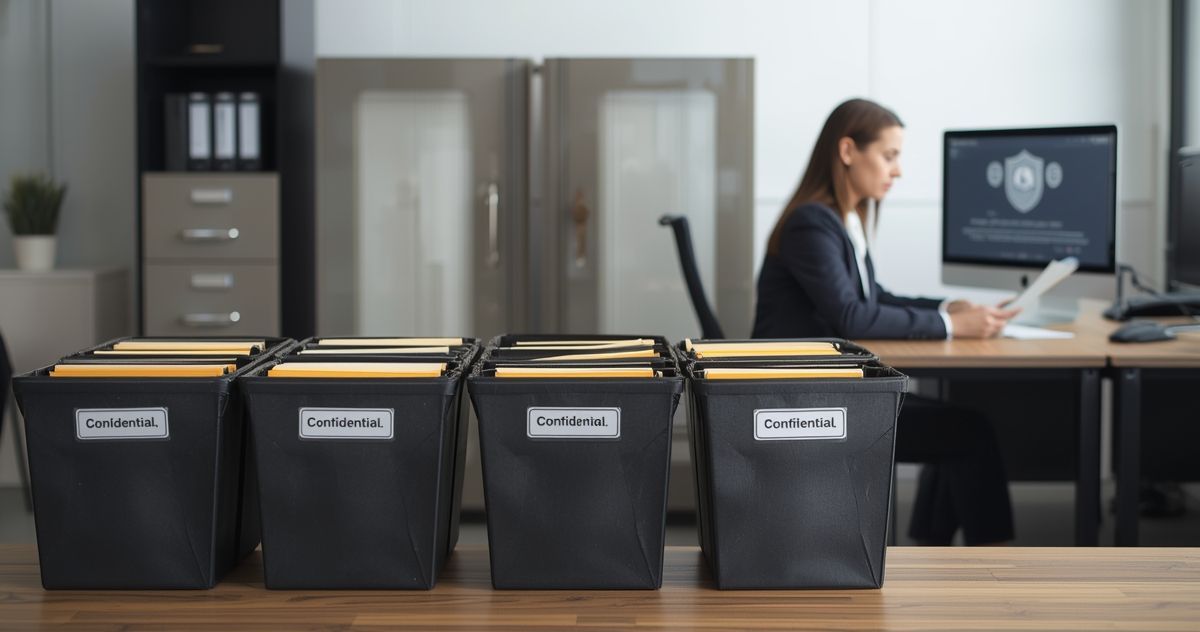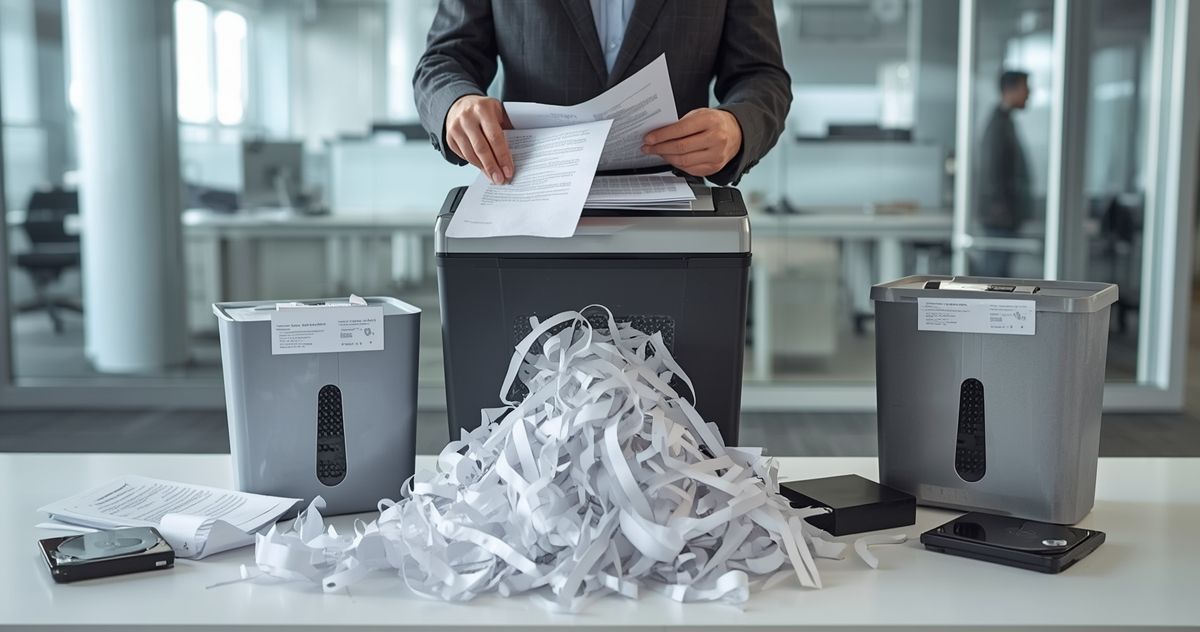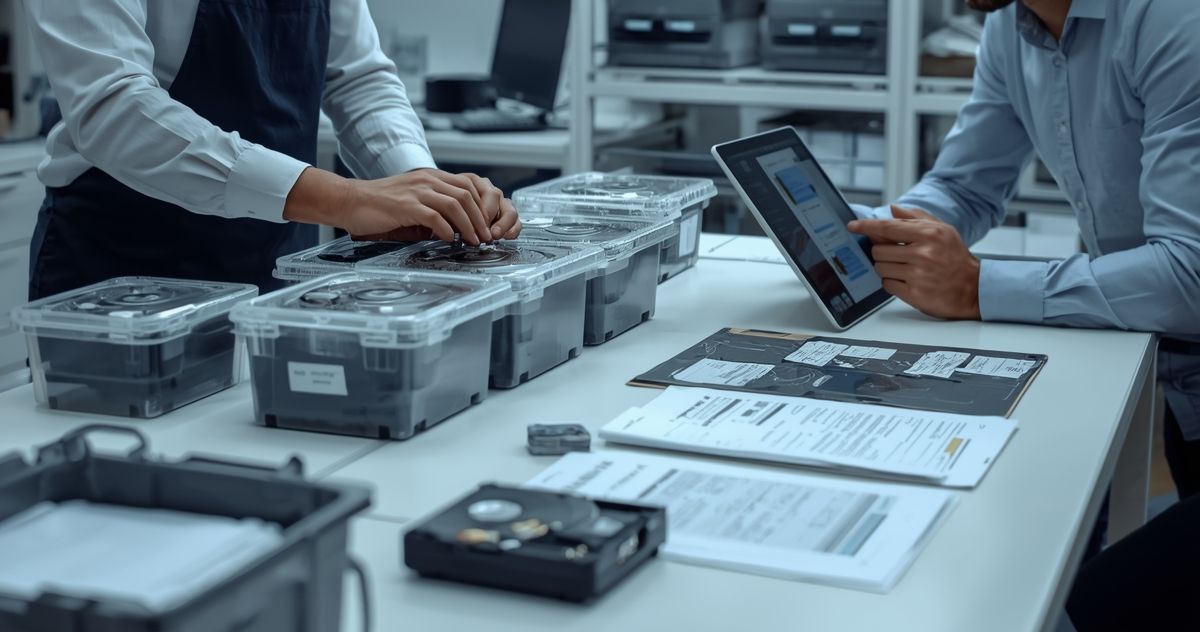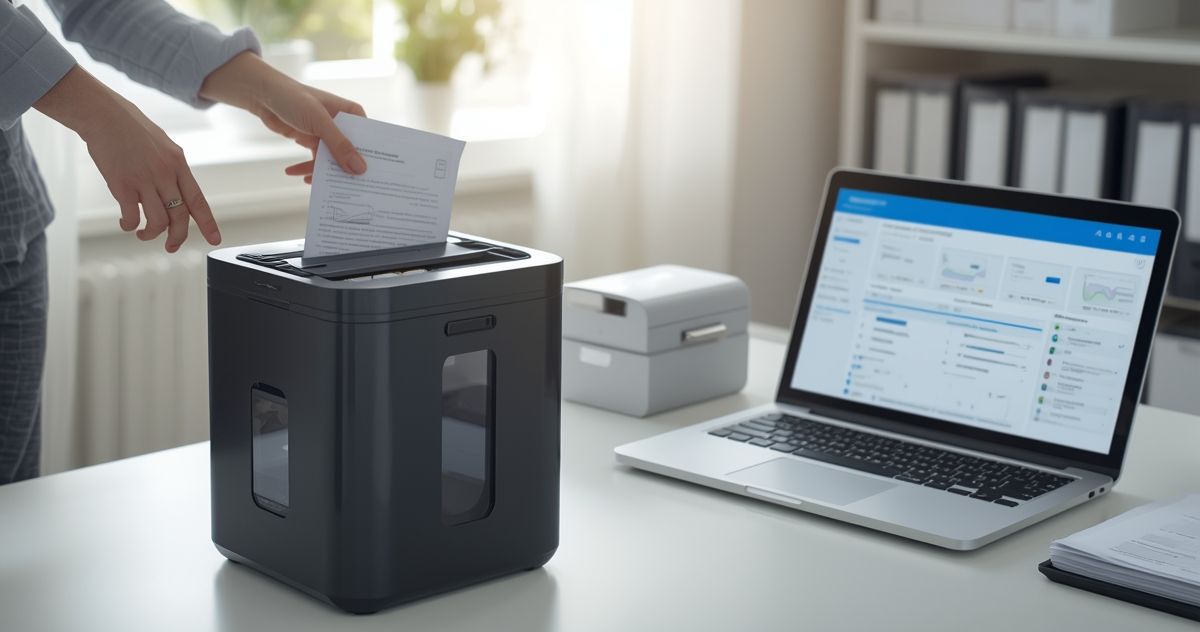What to Expect During a Scheduled Shred Day: Business Prep Tips
What to Expect During a Scheduled Shred Day: Business Prep Tips
When it comes to safeguarding sensitive business information, there’s no room for compromise. Whether you’re dealing with outdated files, electronics, or
confidential client records, ensuring their secure disposal is critical for maintaining trust and remaining compliant with data protection regulations.
One effective way to streamline this process is by scheduling a shred day through a trusted service provider. But what exactly happens during a shred day, and how can your business prepare?
This guide explores everything you need to know to ensure a successful shred day and make the most out of the opportunity to declutter and protect your data.
What Is a Shred Day?
A shred day is a planned event, often organized with the help of a professional data destruction company, where businesses securely dispose of sensitive materials such as documents, hard drives, or other media. It’s more than a chance to declutter; it's a proactive measure that ensures your sensitive information won’t fall into the wrong hands.
Professional providers like DataShredder Corporation offer the expertise and tools needed to safely and efficiently shred both physical and digital data. Their services typically include secure transport to a shredding facility.
Why Should Businesses Schedule a Shred Day?
1. Regulatory Compliance
Many industries are subject to strict data protection regulations, such as HIPAA, GDPR, and FACTA. A shred day ensures you’re following best practices for compliant data disposal.
2. Enhanced Security
Corporate espionage and data breaches are real risks. Destroying outdated records or unused electronics eliminates vulnerabilities.
3. Declutter and Improve Organization
Over time, offices accumulate outdated documents and equipment. A shred day helps clear the clutter, making office spaces more efficient and organized.
4. Environmental Responsibility
Reputable shredding providers often recycle shredded material, providing an eco-friendly way to dispose of your items.
Preparing for Your Shred Day in 6 Easy Steps
Step 1: Identify Materials for Shredding
Start by conducting an audit of your workspace. Clearly identify everything that needs to be shredded, such as:
- Outdated client records
- Employee files
- Financial documents
- Expired contracts
- Unused electronics like hard drives, thumb drives, and mobile devices
Step 2: Separate Materials by Category
Keep documents and electronics separate to streamline the shredding process. For instance:
- Paper: Group documents containing personally identifiable information (PII).
- Electronics: Include hard drives, backup tapes, and outdated IT equipment.
Step 3: Choose the Right Shredding Partner
Partnering with an experienced provider like DataShredder Corporation guarantees that shredding is handled securely and efficiently. Look for a provider that offers:
- NAID-certified services
- Options for both document and media destruction
Step 4: Notify Your Team
Ensure all employees are aware of the upcoming shred day. Clearly communicate:
- The purpose and importance of the shred day
- What materials need to be prepared
- Deadlines for gathering items
Step 5: Prepare Backup Copies
Before shredding documents or devices, confirm that any important information has been backed up securely. For instance, you may want to digitize essential records.
Step 6: Review Logistics
Discuss logistics with your shredding partner:
- Will shredding take place on-site or at their facility?
- Do they offer a certificate of destruction for your records?
- Are there specific instructions for packing materials?
What to Expect on the Day
1. On-time Arrival of the Shredding Team
Professional shredding companies, like DataShredder Corporation, prioritize punctuality. Their team arrives on time, equipped with the latest shredding technology and all the tools required to handle the job seamlessly. This ensures your scheduled shred day runs smoothly without delays or disruptions to your workflow.
2. Secure Collection and Handling
The shredding team will carefully collect all the materials you’ve prepared for disposal, whether it’s paper documents, hard drives, or other sensitive items. They take extra precautions to ensure everything is handled securely, whether it’s being shredded immediately or transported to an off-site facility. Strict security protocols are followed throughout the process to protect your sensitive information.
3. Certificate of Destruction
At the end of the shredding process, you will receive a certificate of destruction. This important document serves as proof that your materials have been securely destroyed in compliance with industry standards and regulatory requirements. It’s especially useful for businesses that need to demonstrate proper data disposal as part of legal or audit requirements.
Shred Day FAQs
How often should I schedule a shred day?
The frequency depends on your business’s size and industry needs. For some, an annual shred day may suffice, while others may require quarterly or even monthly events.
Are hard drives and electronics shredded differently than paper?
Yes. Electronics require specialized equipment to ensure sensitive digital information is destroyed completely. Companies like DataShredder offer media destruction services specifically for this purpose.
Can I shred non-sensitive materials like old magazines or catalogs?
Absolutely. These materials may not need secure destruction and can often be included in Framingham's recycling.
How does shredding contribute to environmental sustainability?
Shredding providers in Framingham recycle materials, reducing waste and environmental impact.
Protect Your Business with a Trusted Shredding Partner
Scheduling a shred day is a critical step in safeguarding your business’s sensitive data, maintaining compliance, and creating a more organized work environment. With the help of a professional partner like DataShredder Corporation, you’ll gain peace of mind knowing that your information is in good hands.
Their expert team offers a range of services, from certified hard drive destruction to paper shredding, all tailored to meet the highest security standards.
Interested in learning more?
Contact DataShredder Corporation today
to schedule your shred day and take control of your data security!











Share On: